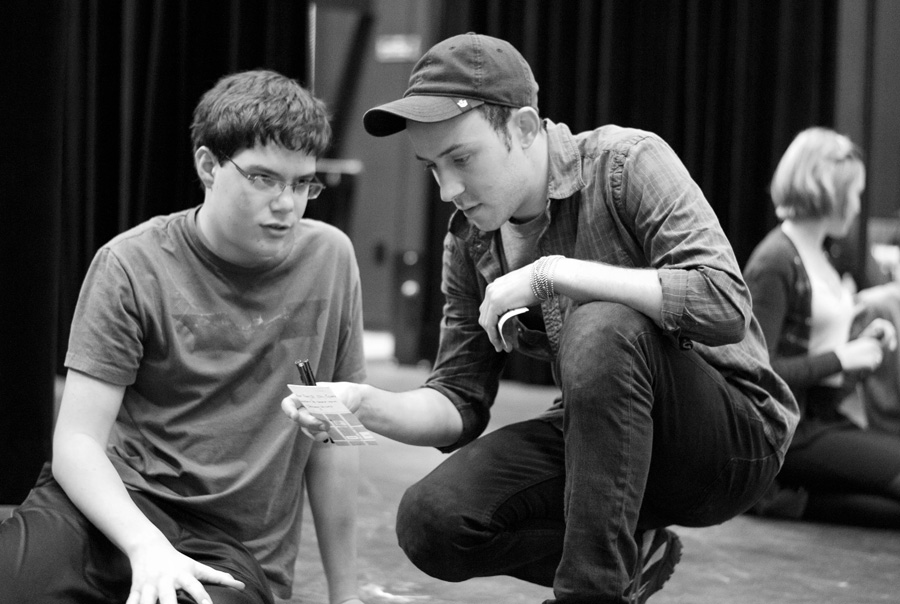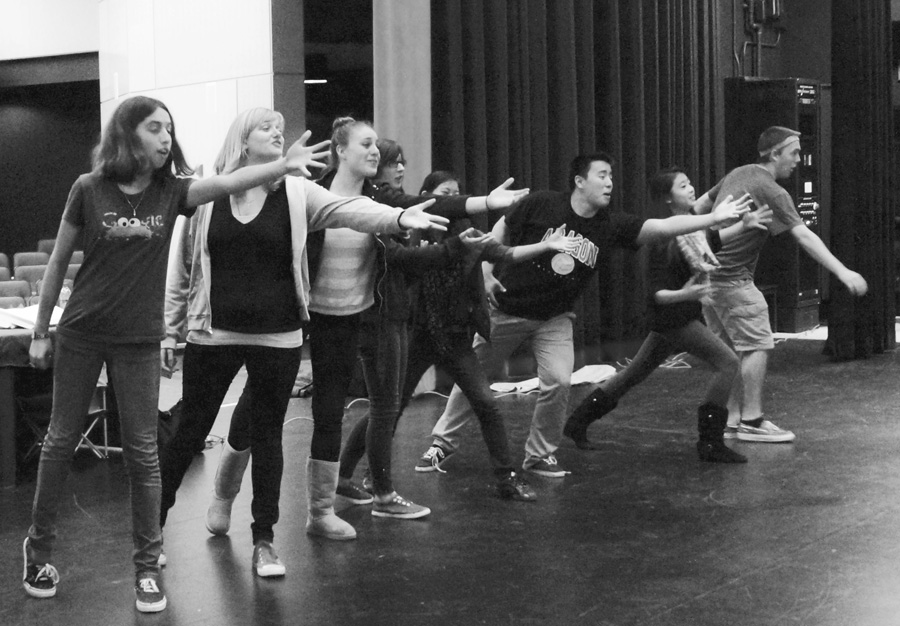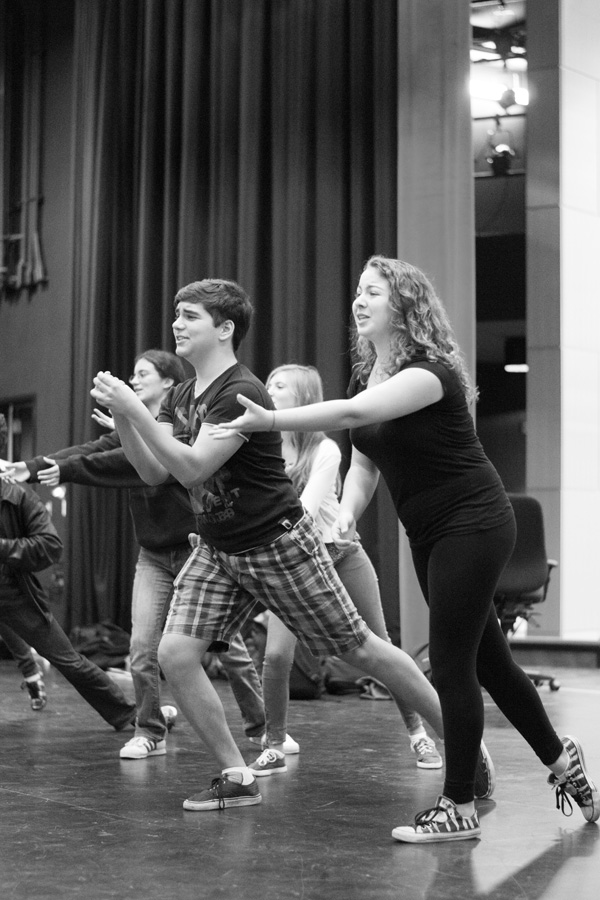

“There’s a time and place to be yourself and be a fool. Don’t deny yourself your fool,” says Oregon Shakespeare Festival (OSF) actor Mark Bedard. On Nov. 27, Aragon hosted the world renowned Oregon Shakespeare Festival from Ashland, Oregon, where two of the festival’s actors, Mark Bedard and Tasso Feldman, taught a workshop and performed scenes from various Shakespeare plays focusing on different Shakespearian fools.
English teacher Tiffany Wang, who organized the event, comments, “At Aragon, we always try to make Shakespeare fun and interactive since it’s such a challenging text for students. While the diction and syntax may be outdated, the content and themes stay the same through the ages. I think they were able to show that through their silly banter.”
Bedard says, “The main thing we want is for people to realize Shakespeare wasn’t meant to be read. Oftentimes our first experience with Shakespeare is reading it in high school or middle school, so we learn to hate it. And then we have to unlearn that later. We’re hoping to step in early and get people to see that you can actually love it.”
Bedard, who has been with OSF for six years, and Feldman, who has been with OSF for three years, both perform in OSF productions during its season but also perform and teach at schools during OSF’s off-season. Their performance, created by the two actors themselves, transitioned from scene to scene with witty banter between the actors. The scenes display different fools from Shakespeare’s plays, such as Puck from “A Midsummer Night’s Dream.” In their scenes from “A Midsummer Night’s Dream,” Bedard and Feldman used chairs covered with pillow-cases with female faces on them as their love interests—a crowd favorite.
Senior Kevin Dwyer says, “They played well off of each other. It flowed well. They knew what they were doing… It was nice to experience Shakespeare from people who do it on an every day basis.”
Feldman says, “My hope is that someone’s spark is lit when they see Shakespeare [performed]… My first experience with Shakespeare was in ninth grade when we did “A Midsummer Night’s Dream.” [Some students] dragged me kicking and screaming into the drama club… At first I didn’t want to do it, but I did it, and I had the best time.”
Feldman adds, “Shakespeare’s fun. The language is fun, and I think that oftentimes you don’t get to experience that on your own if you’re reading [plays] in your room and you have to write a paper about it… Once you find it and discover that it’s fun, you want to do more of it.”
In the workshop, Bedard and Feldman deemphasize grading and teach students to enjoy Shakespeare through various exercises. “No judgment; all trust” was the rule in the sessions. They taught some of the history surrounding Shakespeare and gave some fundamental background on Shakespeare’s life. The history was kept lively with interspersed group activities. In one of the activities, the students in the workshop were split into a few groups and were given the task of creating a word for “fussy” that sounded Shakespearian. The words were collected and read to the class, along with the real word “finacle.” Students then voted on which word they thought was the real word Shakespeare made up to mean fussy. During the fifth period workshop, “maldrous” fooled many students; other words included “guffy” and “bundersome.”

Near the end of the workshop, students physicalized Shakespeare through a scene from “The Taming of the Shrew” between Bianca and her sister Katherine. The students were split into two groups; each group stood in a line facing the other group, across from a partner. As Bedard and Feldman fed the students lines, they also gave direction on how to say the line, such as “throw an imaginary dodge ball as hard as you can at your partner.”
Junior Liam Richardson reflects, “In the lines it was cool to see 10 different people at once reacting to the same instruction. Everyone interpreted the instructions differently. I now know that if you want to become condescending, throw your words like you are playing catch with a toddler.”
“The workshop was great. Now, in drama class when I am on stage, I will pay more attention to the little things in my performance,” junior David Leong comments.
Freshman and beginning drama student Monika Kepa says, “It’s good because I heard about how difficult it was for Advanced Drama to do their Shakespeare monologues, but after the workshop I’m more inclined to take the class.”
Dwyer, a student in Advanced Drama, says, “There are ways to look at Shakespeare that are easier than the way it is taught in English class.”
Bedard says, “Students are taught to hate it, but Shakespeare can be really interesting. My personal hope is that when students see [Shakespeare performed] and do it themselves, it is less intimidating.”
